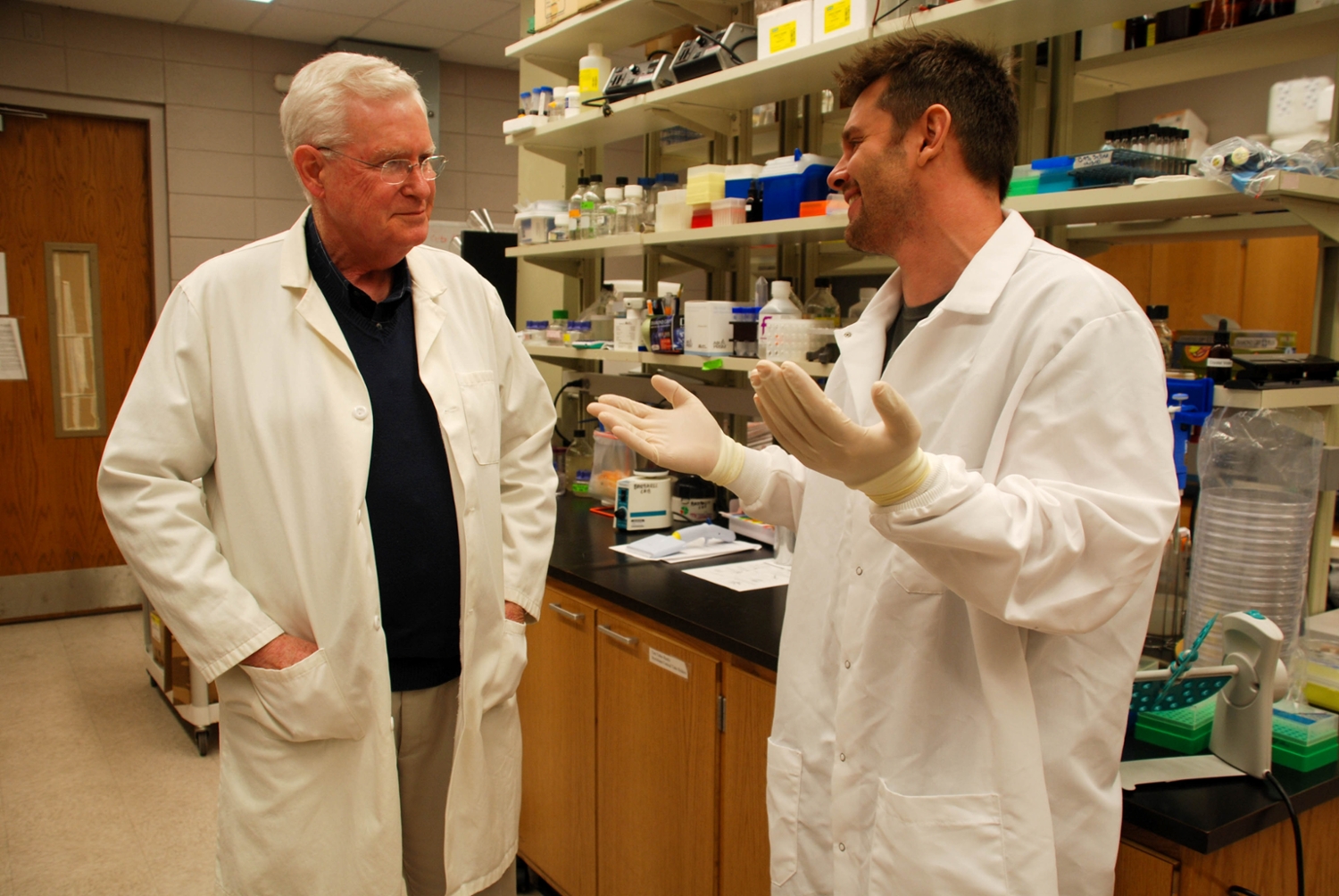COSAM News Articles 2017 April COSAM Mourns the loss of biological sciences faculty member James Barbaree
COSAM Mourns the loss of biological sciences faculty member James Barbaree
Biological Sciences Professor James Barbaree passed away March 27 at the age of 76. A faculty member at Auburn for more than 25 years, Barbaree served as chair of the Department of Biological Sciences from 2002 to 2008, and he taught clinical microbiology and general microbiology. He was also the associate director for research at the Auburn University Center for Detection and Food Safety, as well as an adjunct professor in the Department of Pathobiology in the College of Veterinary Medicine.
As an undergraduate student, Barbaree played football for the University of Southern Mississippi, where he was a three-year letterman and a starter on the 1962 small college national championship team. He received a bachelor of science in zoology and a master’s in microbiology, both from the University of Southern Mississippi. He went on to receive his doctorate in bacteriology from the University of Georgia.
In 1991, Barbaree transferred as a Captain in the U.S. Army to the U.S. Public Health Service Commissioned Corps and joined the Centers for Disease Control and Prevention, or CDC, where he was chief of the Respiratory Bacterial Diseases Epidemic Investigations Laboratory. After 20 years, he retired from the CDC and the military, and he began his second career at Auburn University.
A native of Union Springs, when Barbaree came to Auburn in 1991, it was not his first time to set foot on The Plains. His father, James Baker Barbaree, played one year of football for Auburn University under the leadership of then-freshman-football-coach Ralph “Shug” Jordan, and he was an Auburn fan.
Barbaree was quoted as saying: “Auburn is a great place to live. I find Auburn to be different from other places in that the people who live here seem to get along better overall. It really is true what they say: it is an Auburn Family.”
Barbaree’s research was in the area of rapid detection and subtyping of infectious pathogens, and he used the most current tools in molecular biology, including microchip sensors and pulse field gel electrophoresis (PFGE). He was instrumental in creating new devices for his research, and as such, held six U.S. patents. For example, as a member of the Auburn University Detection and Food Safety Center, Barbaree helped to create a sensor that can detect Bacillus anthracis bacterial spores, or anthrax.
With the Airliner Cabin Environment Research group at Auburn, he conducted studies into the transmission of diseases in airplane cabins. In his lab, he tested how long certain pathogens can survive on different surfaces in an airplane. He tested pathogens such as Escherichia coli O157:H7, Methicillin-resistant Staphylococcus aureus (MRSA), Mycobacterium smegmatis (a stimulant for tuberculosis), and Bacillus anthracis. His research into harmful bacteria in airplane cabins received international recognition and was highlighted by news and media agencies such as Forbes, BBC, NPR, USA Today, Fox News, and more.
Additionally, his research was widely published in books and scientific journals, including the Wiley Handbook of Science and Technology for Homeland Security.
During his career, Barbaree received numerous honors and awards, including: the Southeastern Branch of the American Society for Microbiology Ivan Roth Award; the Auburn University Mortar Board award as Distinguished Professor; the P.R. Edwards Award for recognition of service and contributions in microbiology; the Auburn University Pinnacle of Excellence group research award; the Auburn University Scharnagel Professorship; the James C. Feeley Award for Outstanding Accomplishments in Environmental Microbiology and Occupational Health; the U.S. Public Health Service Unit Citation Award; the CDC Don Mackel Memorial Award; the U.S. Public Health Service Outstanding Service Medal; the Award for Outstanding Leadership as President of the Southeastern Branch of the American Society for Microbiology; a U.S. Public Health Service Commendation Medal; and a U.S. Public Health Service Special Achievement Award.
He served as President of the Auburn University Chapter for the National Academy for Inventors; in numerous roles on the Auburn University Intercollegiate Athletics Committee; as President of the Southeastern Branch of the American Society for Microbiology; the CDC Laison to the Environmental Protection Agency Drinking Water Subcommittee, Toxic Substances, and Science Advisory Board; and the World Health Organization Consultant to China (Shanghai).
To learn more about Barbaree, please see his obituary.
Latest Headlines
-
02/12/2025
-
02/11/2025
-
02/10/2025
-
01/30/2025
-
12/03/2024

